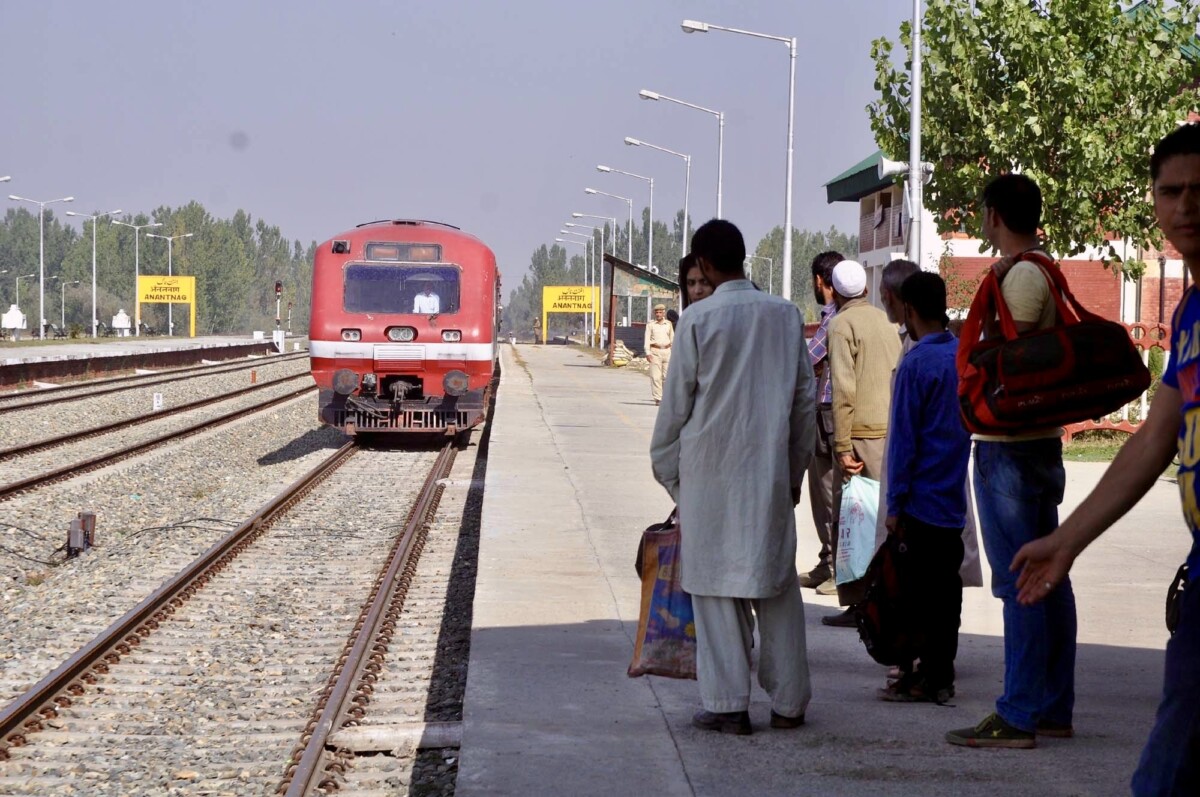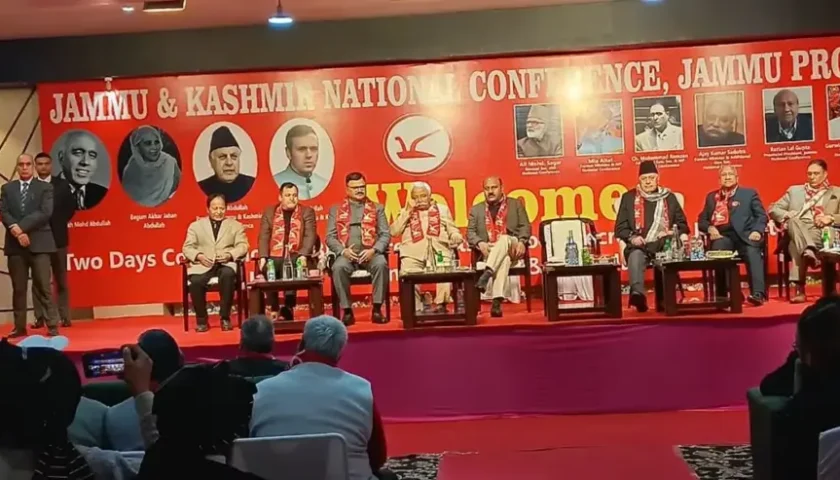Katra Train Swap: Convenience or Concern? The Kashmir Rail Project Debate
By: Javid Amin
The Kashmir Rail Project, once heralded as a transformative infrastructural achievement, now finds itself at the center of controversy. The mandatory deboarding of train passengers at Katra has drawn sharp criticism from various quarters, with concerns ranging from passenger inconvenience to its potential impact on logistics, business, and tourism. While government authorities cite security concerns as the rationale behind this decision, stakeholders question whether this move aligns with the original vision of seamless connectivity promised by the rail project.
This article delves into the complexities surrounding the train swap at Katra, exploring its implications for passengers, the regional economy, and public sentiment. It also examines the political undertones and the broader discourse on security versus convenience.
The Kashmir Rail Project: A Vision Revisited
Launched with the promise of connecting the picturesque valley of Kashmir to the rest of India, the Kashmir Rail Project was more than just an infrastructural endeavor—it symbolized unity, accessibility, and progress. However, the mandatory train change at Katra has added a layer of complexity, sparking debates about whether this decision undermines the essence of the project.
Syed Basharat Bukhari, senior leader of the People’s Democratic Party (PDP) and former law minister, has been vocal in his criticism. He argues that the mandatory train swap negates the original promise of convenience and ease for travelers, particularly those from Kashmir. “The essence of the rail project has vanished,” he said, emphasizing how this measure discourages travelers and adds unnecessary burdens, especially for the elderly, students, and patients traveling for medical treatment.
The Inconvenience Factor: Passenger Struggles
One of the core criticisms of the train swap at Katra is the inconvenience it imposes on passengers. Imagine a family traveling from Delhi to Srinagar. They must now deboard at Katra, manage their luggage, and board another train to continue their journey. For the elderly or those with limited mobility, this requirement can be especially taxing.
Public Concerns
- Medical Travelers: Patients traveling to Kashmir or other parts of the region for medical treatment face undue hardship due to the additional stopover.
- Elderly Passengers: Senior citizens, often less mobile, find the process of deboarding and reboarding exhausting.
- Logistical Challenges: Business travelers and tourists carrying significant luggage struggle with the added hassle of transferring between trains.
“I was traveling with my mother for her medical treatment, and the train change at Katra was both stressful and unnecessary,” said Sameer Ahmad, a resident of Srinagar.
Safety Concerns: A Necessary Measure?
Defending the decision, Chief Minister Omar Abdullah highlighted passenger safety as a top priority. Addressing reporters, he said, “If there are security concerns, then I don’t think there should be any objections. Safety must come first.”
Omar Abdullah’s stance underscores the persistent challenges of ensuring security in a region that has faced its share of volatility. The Chief Minister pointed out that measures like the train swap are temporary solutions until the region achieves complete normalcy.
Security vs. Convenience
While security concerns are valid, critics argue that alternative measures could be implemented to ensure safety without compromising passenger convenience. Enhanced security checks at the point of origin or destination, for instance, could mitigate risks without disrupting the travel experience.
Impact on Business, Logistics, and Tourism
The train swap decision doesn’t just affect passengers—it has broader economic implications as well.
Business and Logistics
Kashmir’s economy heavily relies on logistics to transport goods like apples, saffron, and handicrafts to other parts of India. The additional time and cost associated with the train swap could hinder the smooth flow of goods, increasing expenses for businesses and reducing competitiveness.
“Time is money, and every additional hour spent transferring goods translates to higher costs,” said Abdul Rashid, a logistics operator in Kashmir.
Tourism
Tourism, a vital industry for the region, could also take a hit. The prospect of a more cumbersome journey might deter travelers, particularly those on a tight schedule. Road travel may become the preferred option, further reducing the utility of the rail project.
“Infrastructure should be about making life easier, not harder. This train swap feels like a step backward for tourism,” said Anjali Mehta, a frequent traveler to Kashmir.
Is This Politically Motivated?
The train swap at Katra has also raised questions about political motivations. Critics suggest that the move might be aimed at projecting a tougher stance on security while deflecting from larger infrastructural inefficiencies. Others see it as a way to reinforce control over the narrative of development in the region.
Basharat Bukhari, echoing public sentiment, questioned the necessity of the move and its alignment with the government’s stated goals of unity and accessibility. “Is this truly about security, or is it a politically convenient decision that disregards the hardships faced by the people?” he asked.
What the Public is Saying
Public sentiment on the issue is divided. While some understand the need for security measures, many feel the inconvenience outweighs the benefits. Social media platforms and local newspapers are rife with discussions, highlighting a growing frustration among citizens.
Voices from the Ground
- Sana Khan, Student: “Traveling to Delhi for exams is already stressful. The train swap adds unnecessary hassle to an already long journey.”
- Rajesh Sharma, Tourist: “We planned a trip to Srinagar but opted to drive instead. The train swap at Katra just didn’t make sense for our family.”
- Mohammed Yusuf, Farmer: “Transporting goods has become more complicated and expensive. This decision hurts small businesses like ours.”
Would Road Travel Be a Better Option?
Given the additional inconvenience of the train swap, many are now considering road travel as a viable alternative. While roads offer flexibility, they come with their own set of challenges, including longer travel times, higher costs, and environmental concerns. However, for those prioritizing convenience over cost, road travel might emerge as the preferred choice.
Bottom-Line: A Step Back or a Step Forward?
The mandatory train swap at Katra has sparked a broader debate about the balance between security and convenience. While safety remains paramount, it’s crucial for policymakers to ensure that measures aimed at protecting passengers do not undermine the very essence of the Kashmir Rail Project. The government must revisit this decision, engaging with stakeholders to find a solution that addresses security concerns without alienating travelers or hampering regional growth.
Ultimately, the success of the Kashmir Rail Project lies not just in its completion but in its ability to deliver on its promise of seamless connectivity, economic growth, and an improved quality of life for the people it serves.




